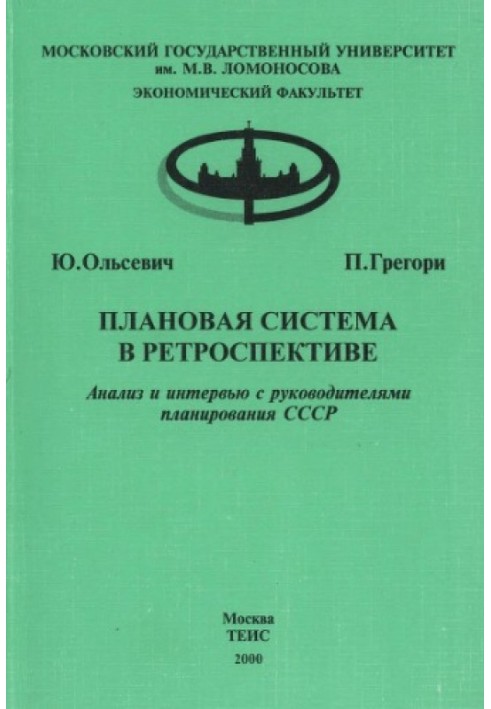The planning system in retrospect: Analysis and interviews with USSR planning leaders
 Instant download
Instant download
after payment (24/7)
 Wide range of formats
Wide range of formats
(for all gadgets)
 Full book
Full book
(including for Apple and Android)
The work examines the post-war history of economic reforms in the USSR from a specific angle: why did these reforms ultimately fail? The specifics of Stalin's planning are revealed, the question of the logic of Khrushchev's reforms is posed in a new way, and an answer to the question of why the Soviet economy remained stable for so long despite fifteen years of stagnation and decay is proposed. The authors compare new approaches to the problems of the evolution of Soviet planning with the opinions of competent and well-known leaders of the USSR State Planning Committee, members of the Politburo of the CPSU Central Committee, who strive, taking into account modern experience, to comprehend the contradictory and difficult path that led the country to the modern economic catastrophe. The authors are Professor of Moscow State University. M.V. Lomonosov Yuli Olsevich and professor at the University of Houston (USA) Paul Gregory. The work can be used in studying the course of the history of the national economy and economic thought.
Data sheet
- Name of the Author
- Пол Грегори
- Language
- Russian
Reviews
Глибокий аналіз радянської економіки
Книга "Планова система у ретроспективі" є надзвичайно цінним внеском у вивчення економічної історії СРСР. Автори, професор М.В. Ломоносова Юлій Ольсевич та професор Пол Грегорі, майстерно досліджують причини невдач економічних реформ, що відбувалися в країні, та пропонують нові погляди на сталінське планування і хрущовські реформи. Вони вміло поєднують теоретичний аналіз з інтерв'ю з ключовими фігурами, що дозволяє читачеві отримати глибше розуміння складних процесів, які призвели до економічного застою. Книга не лише інформативна, але й викликає багато запитань про сучасні економічні моделі. Рекомендую всім, хто цікавиться історією економіки та соціальних реформ, адже вона відкриває нові горизонти для розуміння радянського минулого і його впливу на сьогодення.










